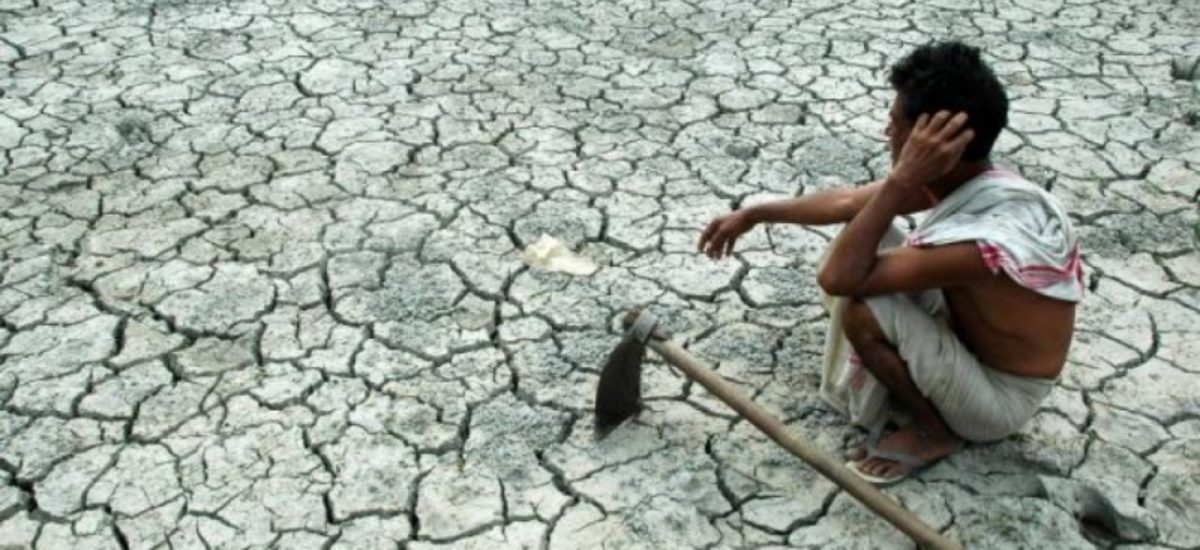Photo courtesy of Global Risk Insights
“This ain’t a technological highway, it’s just the road to hell.” Chris Rea
Doing the same thing over and over again and expecting a different result is the definition of madness. So I venture again into the realm of madness and once more try to warm the public of the harm that politicians and bureaucrats are doing to us and to warn of the dangers that Sri Lanka will face through their promotion of the consumption of oil and gas as development.
Internationally the world has awoken to the reality of climate change brought about by the consumption of fossil fuels. But our politicians and bureaucrats are oblivious to the facts as illustrated by the construction of fossil expensive roads or commission laden construction projects or misplaced excitement about drilling for oil in our oceanic waters.
The danger of using fossil energy consumption as development was first pointed out in 1977 when some of the uneducated politicians who still occupy parliamentary positions were promoting their warped idea of “development”.
On my return from Guatemala in 1977 I wrote in the Sun newspaper: “Then I began to make more penetrating enquiries and found that the “malcontents” ranged from the Guatemalan Chamber of Commerce who were fighting hard to keep the giant American corporation SEARS out of Guatemala to protect their native shop keepers: up to the dispossessed labour who were trapped into complete dependency on the huge agricultural complexes of the multinational.
“These complexes grew crops for export and took the most productive farmlands out of the hands of the people. It was as if people did not matter and that only abstract economic goals such as: “growth” mattered. It was disturbing. The images were vivid. As the plane bringing me home clipped low over the beautiful paddy fields and the coconut small holdings around Negombo, those images came back to hunt me and chilled me to the bone. Whither go we?”
And in the Observer of 1977 the move to change our agricultural system was questioned again: “The traditional varieties of rice used with traditional agricultural methods, utilize composted fertilizer and animal power as the source of extra energy for subsidy. This type of system use 0.62 to 0.65 calories of energy subsidy for one calorie of food output. As this energy input is basically biological i.e. man and animal power, it does not represent an economic loss to the nation. On the other hand the use of “miracle rice” intensive agricultural systems which often uses around 0.3 to 0.5 calories of energy input for 1 calorie of food output entail heavy doses of fertilizers and agrochemicals do represent tangible financial or economic pressures on the nation.
“The new breeds “miracle rice” are merely genetically selected dwarf plants with small roots systems and the minimum amount of leaves needed to capture a maximum of usable solar radiation. Such a plant has not potential for protection and maintenance, these functions being take n over by men, fuels and chemicals. It is selected to produce edible grain at the expense of non-edible tissue and responds excellently to high inputs of fertilizers. Such plants coupled with the use of tractors, pesticides, weedicides, etc. would and do produce seemingly wondrous crops.
“All the components that go to form this high yield agriculture are also dependent on energy for their organization. In this case the source of energy is from fossil fuels i.e. oil and coal. We in this country having no fossil fuels would then become increasingly dependent on imported energy, if such methods of agriculture were to be actively utilized. Achieving a high agricultural productivity at the expense of being enslaved by the price of fossil fuel would seem a hollow victory.
“It would be illuminating to ask the question why could we not use these methods as long as it was economically profitable and then revert back to the traditional systems? The answer is already obvious to the farmers who use high-energy agrochemicals. They observe that their field “gets burned” with the use of fertilizer and agrochemical. The meaning of this simple but very important observation is that the soil organisms that make up the micro fauna and flora are disrupted and the natural fertility of the field falls. The build up of the soil organisms to the pre agrochemical complexity could take from one to four years. So, once we depend on the high-energy dependent rice agricultural system it is very much a case of taking hold of the proverbial tigers tail, there is not letting go.”
The tragedy is that we have the same politicians of yesteryear who brought about our “development” debacle in the 70s and still occupy seats of power and sprout the same old mantra of “development” that has failed so many times before. These people are living in their realm of madness, contributing to climate change and dragging the nation down with them.
The hypocrisy of politics in promoting the destruction is illustrated in their statements of the past. For instance in 1980 in the Daily news I observed that President J.R. Jayewardene at 36 years of age as a young politician wrote, “The environment which the State provides today, for building up the character of its citizens, tends not to the establishment of the ideal but to its destruction. The majority of States, including Sri Lanka, stand for the purely industrial and utilitarian view of life, the cult of power and machinery and national comfort.”
“Public education, financed by the State, equips the young to fit into this same environment. Even religious organizations preach the ideal, but practice the opposite. In the social world, in the professions, in commerce and in politics, we find the struggle to acquire for self as the dominant factor. The society that comprises the State, is a purely acquisitive society: and the sickness we suffer from is the sickness of an acquisitive society.”
But sadly, after acquiring power, his call was not to the save nation but to encourage consumerism as development and facilitate the exploiters of our needs, as when he famously invited them by saying publicly “let the robber barons come” and indeed they did; they are now controlling many parts of our economy.
In the same article I noted, “An increase in the foreign debt will require larger and larger acreages of cash crops to be grown, so that we can make the money needed to service the debt and so on…It may not be long before the multinationals begin suggesting that the newly-cleared lands of the Mahaveli are excellent for export-oriented crops. If this happens, the circle will be complete. They loan us money to develop our land so that we may grow crops for their profit”.
Today with our lands being parceled out to various nations or multinational corporations to settle our debts and these words have become true.
As this article is a reflection of how we have come to the crisis that we are in today and have been reduced to leasing out our land for time periods exceeding a generation, it will be fitting to close with a quote from Thomas Jefferson, a President of the United States of America, who asked, “Can one generation bind another and all others in succession forever?” He also answered this question stating, “I think not. The Creator made the earth for the living, not the dead”.
The world is changing faster than we ever imagined and the changes are not for the better. The UN has issued a climate report called Code Red for Humanity; we need national adaptation strategies to respond. The earth is becoming unable to support the living while we stand shackled by the contracts of dead men. The scientific community has issued the most stark warning yet, how will we respond?
The current “development” drive to maintain our economy is based on the technology of fossil dependent processes. We have spent our national treasure and borrowed heavily to create the edifices and highways of development. In spite of all the “development” and technological promises made by politicians, the future they want to create for us may not be a technological highway to heaven but it could put us all on a road to hell!
This is part one of a four part series ‘Development or Survival’ to read parts two, three, and four, see below.
Part two – The Heat is Killing
Part three – Out of Balance
Part four – Why We Need Trees


